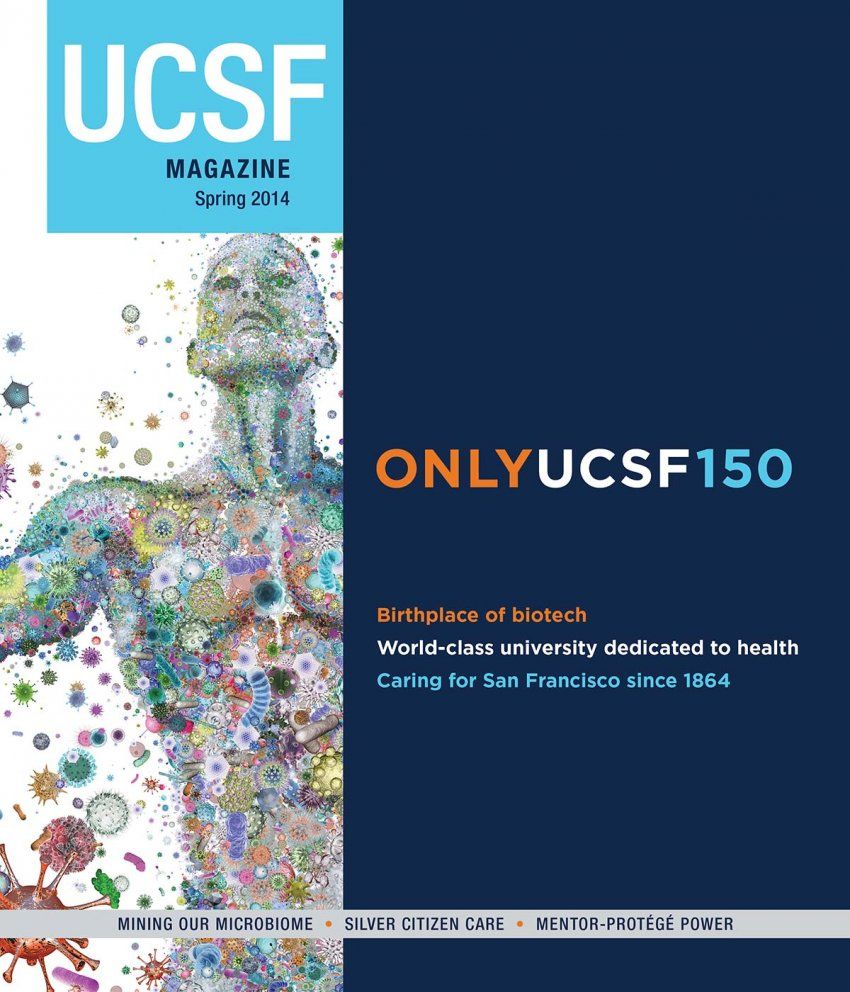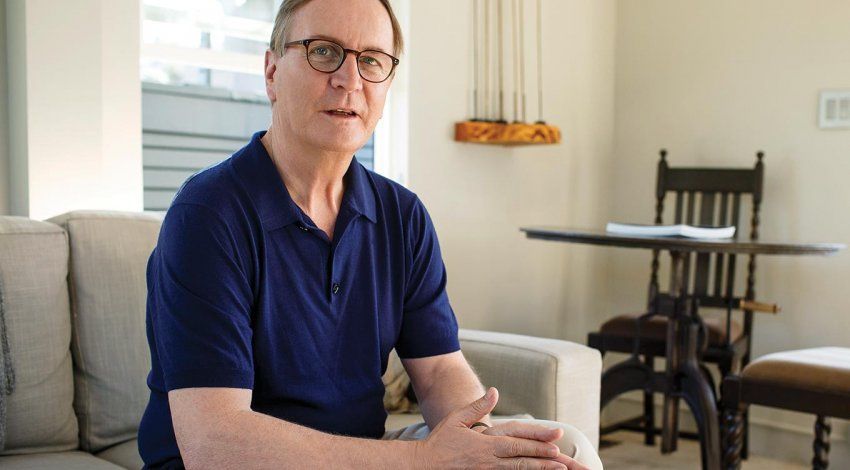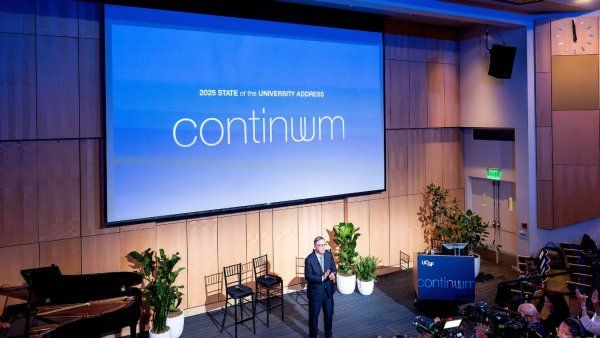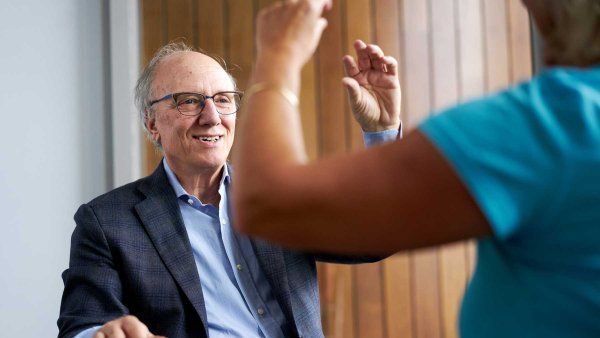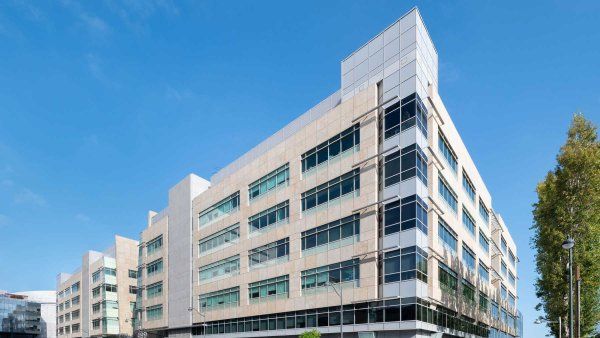
Passing the Torch
Two respected physician-scientist leaders sat down with KQED Public Radio’s Scott Shafer in March to share their views at a pivotal moment: the changing of the guard at UC San Francisco.
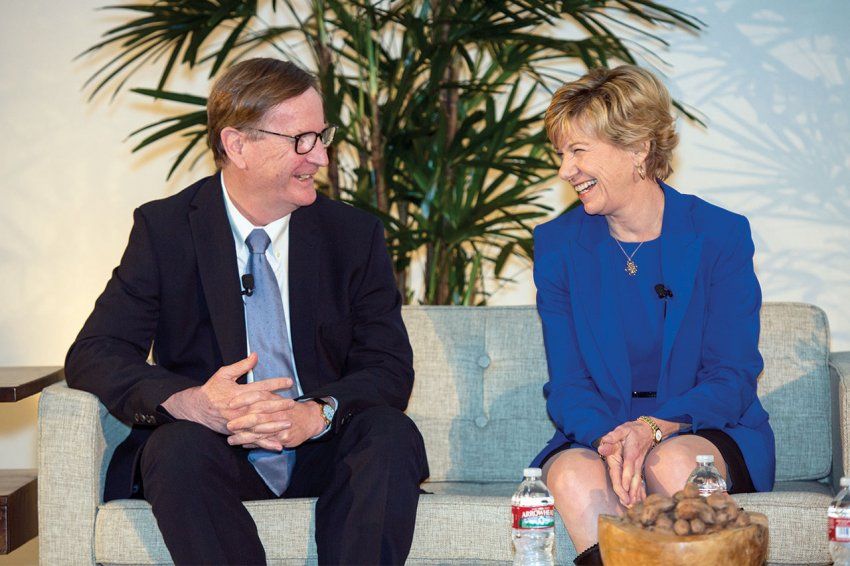
Photo: Elisabeth Fall
Renowned pediatrician Sam Hawgood, MBBS, took the helm of UCSF in April, when he became interim chancellor. The dean of the School of Medicine and vice chancellor for medical affairs, Hawgood has enjoyed a distinguished 32-year career at the University. The School of Medicine has thrived under his leadership – it is now the top medical school in the nation in National Institutes of Health research funding, and many of its departments also lead the nation in their fields. He assumed the chancellor’s role from Susan Desmond-Hellmann, MD, MPH, who joined the Bill & Melinda Gates Foundation as CEO on May 1. Among her many accomplishments at UCSF were launching the precision medicine initiative and navigating the University through the 2008 economic downturn. Following are some excerpts from their conversation about leadership.
On good leadership
Desmond-Hellmann: The most important measure of good leaders is that people want to follow them. Clarity of purpose is essential. Great leadership has a clear direction and lets everyone know they can be part of following that clear direction.
Hawgood: To amplify on that, it’s not about the leader but the leader’s ability to bring out the best in others. It’s aspirational. It’s interesting: neither of us reflected on the personal attributes of leaders, because they can come in many different flavors – like great ice cream.
On leading during tough times
Hawgood: To lead is not a job – it’s a verb. It’s what you do to get people to follow you. The dynamic is interesting. Leaders are [expected to have] an enormous strength of will to get things done, but also to be flexible when challenges arise or a change of direction is needed. Getting that balance right is critical.
On the balancing act
Desmond-Hellmann: It’s moving from a wish to be liked to a wish to be respected. What I care about most is that people see me as fair. [It’s also important to be] clear about how you are making decisions and what your values are. Early in my career, I thought there was a certain way leaders had to be: male and strong and aggressive, like [former General Electric CEO] Jack Welch. I thought, “I’m no Jack Welch!” [Then] I got to work for Art Levinson at Genentech. His major attribute as a leader for me was authenticity – what you saw is what you got.
On navigating complexity
Hawgood: I like the term “adaptive leadership” – not every occasion is going to cull from you the same style and approach, but you must remain crystal clear on the purpose and goals of the issue. And when you are at loggerheads, it’s really important to try and understand why. In medicine, we diagnose before we treat, and yet in leadership, I don’t think we spend enough time diagnosing.
Best advice received
Desmond-Hellmann: Don’t underestimate what’s possible. Change the world and go big. I’ve heard it in many versions, but it always pushes me to ask “Are we striving for a journey that’s ambitious enough?”
On what helps motivate UCSF faculty and staff
Hawgood: The implicit reward of working for a noble purpose. Our product is a changed human being. Private universities have that same nobility of purpose, but our nobility of purpose coupled with our public mission creates a very powerful reward system.
On UCSF pride
Desmond-Hellmann: I see enormous pride across UCSF – in breakthroughs and helping solve the suffering of patients and families, in our students and trainees, and in what UCSF does in our community, both in our schools and as an economic driver. We’re making a mission-driven difference in areas that advance health worldwide, but we’re also making a community difference.
On UCSF’s role in a changing health care environment
Hawgood: As a health science-only university, UCSF sits at the exact vortex of two major industries that are up for disruptive innovation – health care and higher education. I’m excited about that opportunity, because with our intensity of focus, we have the ability to create a new model for both of those industries going forward.
On UCSF’s home turf, the Bay Area
Hawgood: It’s a huge advantage. It’s enabled us over decades to have – deep in our DNA, our culture – a willingness to change, take risks, and be entrepreneurial. It’s one of the reasons we have an opportunity to come up with the new models that are going to be important. It’s not just the innovation of Silicon Valley; it’s the people who are attracted to the Bay Area. They tend to want to push things along. And our students are as smart as tacks and [drive] our momentum. They’re not going to let us slow down.
